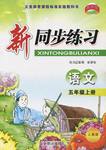Science Fiction The science fiction type of entertainment is considered by most to be fathered by Jules Verne (A Journey to the Center of the Earth and Twenty Thousand Leagues Under the Sea) and H.G.Wells (The Time Machine and The War of the Worlds).Sci-Fi, as it is commonly shortened, is a fictional story in which science and technology have a significant influence on the characters and plot.Many such works are guesswork about what the future holds and how scientific findings and technological advances will shape humankind.
Writing in the late 1800s, Jules Verne was remarkably successful in his 10 guesses about future technologies of air conditioning, automobiles, the Internet, television, and underwater, air, and space travel.Unbelievably, of all places from which to choose, Jules Verne guessed Tampa, Florida, USA as the launching site of the first project to the Moon, which was only 200 kilometers away from the actual 1969 location at Cape Canaveral, Florida.
One of the best-known science fiction books is Nineteen Eighty-Four by George Orwell.Published in 1949, it was not meant as a prediction, but as a warning: Orwell was describing what he saw as the outcome of the ideas, trends, and emerging technologies of his time.Many invented terms from this novel have become common in everyday use, such as “big brother” and “doublethink”.Even the author’s name has been made into an adjective—Orwellian—and has become a warning descriptor for situations where privacy is lost and the individual becomes sacrifice under a totalitarian(极权主义)government.Nineteen Eighty-Four was translated into sixty-five languages within five years of its publication, setting a record that still stands.
What helps bring science fiction into being is usually a new discovery or innovation.The author creates an analysis of the potential influence and consequences and then wraps it in a pleasant story.For example, the beginning of space exploration was followed a few years later by the Star Trek television program and movie series.Advances in genetics(遗传学)cause fantasies of the end of disease, horrors of eugenics(优生学), and thrillers where creatures disappearing long ago are brought back to life.The science fiction author’s self-determined role is that of field glasses for humanity—searching the world of future possibilities upon the road which we are traveling.
1.What can science fiction offer to people?
A.A forecast of how a new discovery could influence mankind.
B.A thoughtful look at the present drawbacks of technology.
C.An analysis of why a new technology could be used to harm human.
D.A thoughtful look at the past and what brought us to this point in history.
2.Which of the following best summarizes the description of Nineteen Eighty-Four?
A. A prediction of future technologies
B. A warning of cruel and unfair ruling
C. The consequence of scientific findings
D. An imaginary perfect world of freedom.
3.From the passage we can learn that _____.
A. Nineteen Eighty-Four adopted some popular terms
B. H.G.Wells predicted the Internet in the late 1800s
C. Cape Canaveral was mentioned in Jules Verne’s fiction
D. Star Trek movie series were based on space exploration
4.According to the author, what is the role of science fiction in society?
A.A moral compass
B.A reference of technology
C.A record of science development
D.A consideration of possibilities
 教学练新同步练习系列答案
教学练新同步练习系列答案
